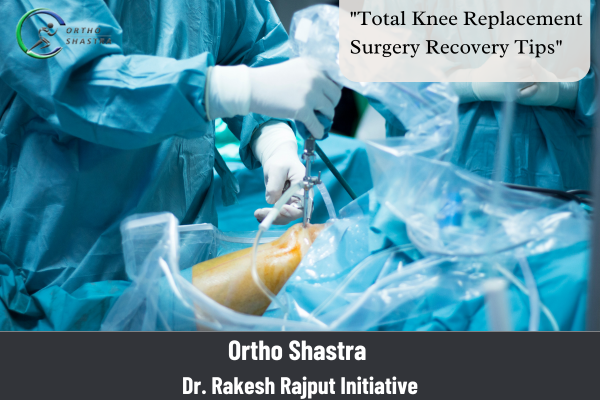Total knee replacement surgery is a transformative procedure that alleviates chronic pain and improves mobility for those suffering from severe knee joint issues. However, a successful recovery is crucial to maximizing the benefits of the surgery. Dr. Rakesh Rajput, a renowned orthopedic doctor in Kolkata, shares key recovery tips to help patients regain strength, mobility, and independence after total knee replacement.
1. Follow Your Physical Therapy Plan
One of the most important aspects of recovery is adhering to your physical therapy regimen. Your physiotherapist will guide you through exercises designed to strengthen the muscles around your knee, improve flexibility, and restore range of motion. Early and consistent participation in physical therapy ensures quicker recovery and helps prevent post-surgery stiffness.
- Tip: Start with gentle movements and increase activity levels gradually, as advised by your therapist. Avoid skipping sessions to maintain consistent progress.
2. Manage Pain and Swelling
Pain management is a vital part of your recovery process. After surgery, some discomfort and swelling are normal. Your doctor will prescribe medications to help manage the pain. In addition, you can reduce swelling by using ice packs and keeping your leg elevated, especially in the initial days after surgery.
- Tip: Apply ice to the knee for 15-20 minutes every few hours and keep your leg elevated when sitting to minimize swelling.
3. Focus on Proper Nutrition
A balanced diet rich in nutrients plays a significant role in your healing process. Protein aids in tissue repair, while calcium and vitamin D are essential for bone health. Consuming fruits, vegetables, lean meats, and whole grains will help boost your immune system and ensure a faster recovery.
- Tip: Stay hydrated and avoid processed or sugary foods, which can slow down healing.
4. Use Assistive Devices Safely
During the initial recovery phase, you may need assistive devices like crutches or a walker to help you move around. These devices prevent falls and minimize stress on your healing knee. Gradually, as you regain strength, you’ll transition to walking without assistance.
- Tip: Ensure your home is free of tripping hazards like loose rugs and cables to make moving around with assistive devices easier.
5. Rest, But Don’t Overdo It
Rest is essential for healing, but too much inactivity can lead to complications like blood clots and joint stiffness. Strike a balance between movement and rest. Follow your doctor’s guidance on when and how much to move, and avoid strenuous activities during the early stages of recovery.
- Tip: Keep your leg elevated when resting but make sure to get up and walk every few hours as instructed.
6. Watch for Signs of Infection
After surgery, it’s important to keep an eye on your incision site for signs of infection, such as redness, swelling, warmth, or drainage. Contact your doctor immediately if you notice any concerning symptoms.
- Tip: Keep the incision clean and dry, and follow your doctor’s instructions on caring for the wound.
7. Stay Positive and Patient
Recovery from total knee replacement surgery takes time. Be patient with yourself and stay positive. While initial improvements can be seen in the first few weeks, full recovery may take several months. Focus on small milestones and celebrate progress.
- Tip: Engage in light activities you enjoy to keep your spirits up and stay mentally active during recovery.
Conclusion
Recovering from total knee replacement surgery requires dedication, patience, and a solid plan. By following these tips from Dr. Rakesh Rajput, a leading orthopedic doctor in Kolkata, patients can ensure a smoother and faster recovery, helping them get back to a more active and pain-free life. Remember to always follow your doctor’s instructions, take care of your body, and seek support when needed.

